National Disability Strategy, Part 3: a cross-government effort to transform disabled people's everyday lives
Updated 2 December 2022
Presented to Parliament by the Secretary of State for Work and Pensions by Command of Her Majesty, July 2021
Command paper number: CP 512
ISBN: 978-1-5286-2841-9
© Crown copyright 2021
The National Disability Strategy sets out the actions the government will take to improve the everyday lives of all disabled people. It has 4 sections:
- Introduction including forewords and executive summary
- Part 1: immediate commitments to improving disabled people’s lives
- Part 2: including disabled people in policy making and service delivery
- Part 3 (this section)
See the main publication page for alternative formats.
Cabinet Office

Julia Lopez MP
At the centre of government and as host of the Disability Unit, the Cabinet Office will support disabled people to play a full part in public life by removing barriers to participation in our democracy, public appointments and working in the Civil Service. I am proud to be part of the team of Ministerial Champions driving this strategy forward across government
(Julia Lopez MP, Ministerial Disability Champion for the Cabinet Office)
The Cabinet Office supports the Prime Minister and ensures the effective running of government. It is also the corporate headquarters for the UK government.
The department is committed to putting disabled people at the heart of government policy making and service delivery.
As the centre of government, the Cabinet Office will drive change across all government departments, holding departments to account for the actions in this strategy and encouraging departments to work together on priority areas for disabled people. The department will drive better outcomes for disabled people across the full breadth of the department’s portfolio, from Civil Service reform to honours to voting.
The Cabinet Office commits to:
- better recognise the exceptional contribution of disabled people to the UK through the honours system
- launch a new website and application system to transform how disabled people can access public appointments, alongside increased outreach with disability networks
- develop a new principle that arm’s length bodies offer disabled non-executive directors on their boards the ability to do their duties remotely, if they so wish
- ensure the exemplar accessibility of government buildings, through the work of the Government Property Agency
- introduce legislation to require returning officers to consider the needs of people with a wide range of disabilities
- progress work to require landlords to make reasonable adjustments to the common parts of leasehold and commonhold homes
- run a campaign to help the public sector make mobile applications accessible, and raise awareness of how people can raise complaints about inaccessible websites
- consult on workforce reporting on disability for large employers, exploring voluntary and mandated workplace transparency, and publish a set of next steps
- lead by example, taking further measures to make the Civil Service a brilliant place to work for disabled people, including timely workplace adjustments, support for staff disability networks and continuing to grow our multi-award winning work experience and development programmes
- lead a multi-year programme to improve the availability, quality, relevance and comparability of government disability data
- leverage government’s procurement spend to drive better outcomes for disabled people
- review our approach to ensure we are engaging in the best ways and with a sufficiently diverse group of disabled people
- explore the establishment of a world-leading Centre for Assistive and Accessible Technology
- expand the Disability and Access Ambassadors programme
- assess the assistive and accessible technology needs of disabled people in England
- through the Central Digital and Data Office, deliver a single government account for users’ personal and business needs, benefitting many disabled people
- improve the accessibility of government communications
- work across government to drive further action on crime, accessible products and services and social participation
- through Places for Growth, help create a fully inclusive and diverse workforce for the long term, not the short term, and developing talent opportunities across the Regions and Nations of the UK
Department for Business, Energy and Industrial Strategy
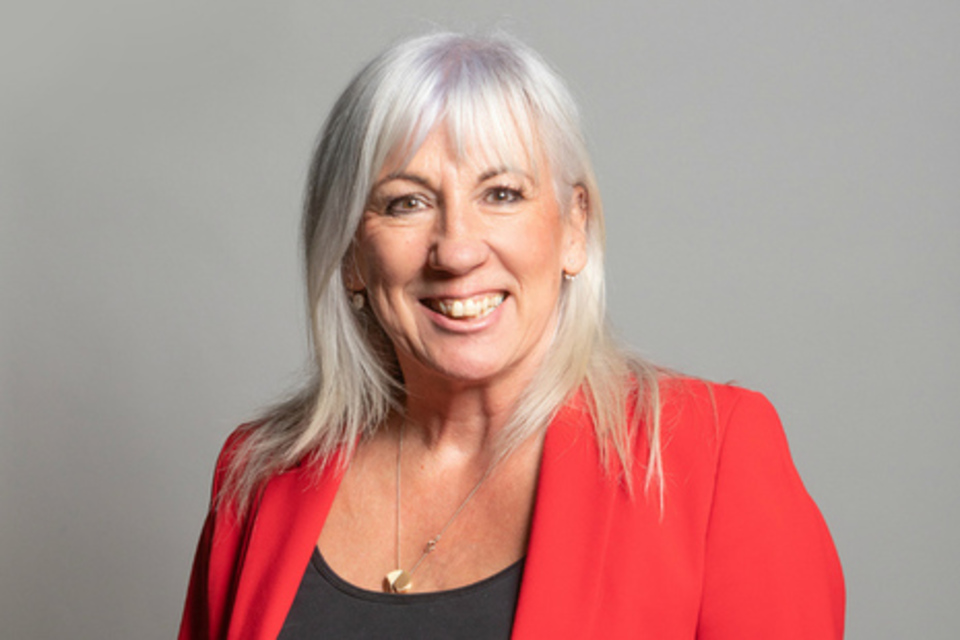
Amanda Solloway MP
The publication of this strategy brings into sharp focus the need to place disability at the heart of our policy making. I am committed to grabbing this opportunity with both hands, so my department, working with the rest of government, can effect proper, meaningful change to the lives of disabled people.
(Amanda Solloway MP, Ministerial Disability Champion for the Department for Business, Energy and Industrial Strategy)
The Department for Business, Energy and Industrial Strategy (BEIS) is building a stronger, greener future by fighting coronavirus, tackling climate change, unleashing innovation and making the UK a great place to work and do business.
The department is committed to making the UK a great place for disabled people to work and do business.
The department will bring forward new rights and entitlements for disabled people and carers in the workplace, as well as exploring the case for targeted support for disabled entrepreneurs.
BEIS commits to:
- challenge UKRI and other research stakeholders to use future innovation challenges to accelerate innovation in assistive technologies
- explore what additional targeted support should be made available for disabled people who want to start a business
- launch a consultation on making flexible working the default, unless employers have good reason not to
- progress the government’s commitment to introduce unpaid carers leave
- set up a new advice hub on employment rights for disabled people, jointly with Acas
Department for Digital, Culture, Media and Sport

Baroness Barran
I am delighted to be DCMS’ Ministerial Disability Champion. As a department that touches the lives of everyone, DCMS has ample opportunity to contribute positively to the disability agenda. As well as the department, I am dedicated to the commitments we have included in the strategy and will work with our stakeholders to achieve life changing outcomes for those with protected characteristics.
(Baroness Barran, Ministerial Disability Champion for the Department for Digital, Culture, Media and Sport)
The Department for Digital, Culture, Media and Sport (DCMS) helps to drive growth, enrich lives and promote Britain abroad.
The department is committed to enriching disabled people’s lives, tackling loneliness and making the UK the most accessible tourist destination in Europe by 2025.
DCMS will take action to close the participation gap between disabled and non-disabled people in sport, arts and culture. It will also consider options to tackle the persistently poor accessibility of private sector websites.
DCMS commits to:
- introduce a new free arts access card to make it easier for disabled people to enjoy the arts and cultural venues across the UK
- make the UK the most accessible tourism destination in Europe
- work with Sport England to address the inequalities faced by disabled people in sport and physical activity
- explore how to improve the accessibility of private sector websites
Department for Education
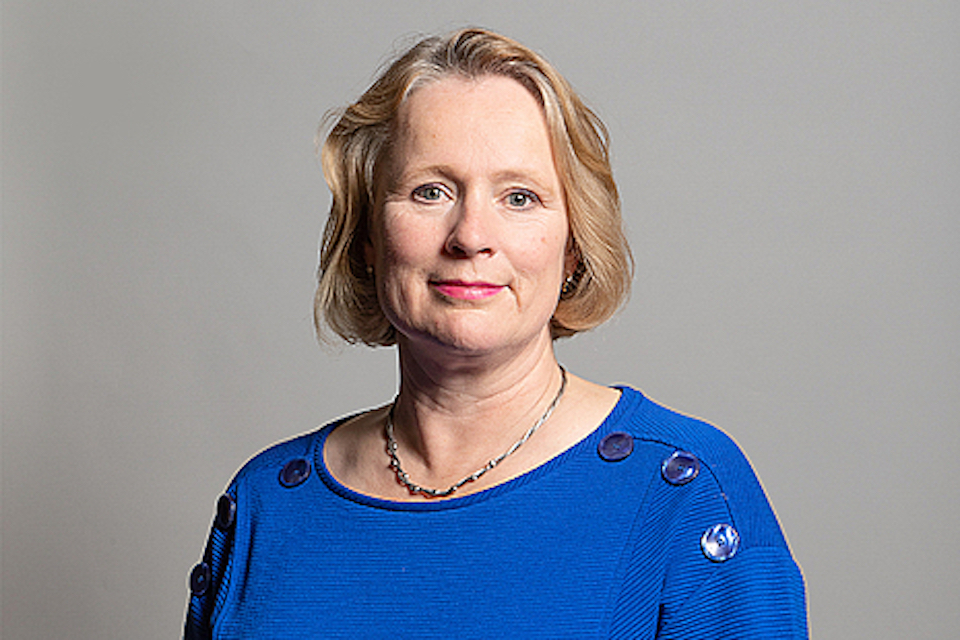
Vicky Ford MP
I am absolutely committed to supporting disabled children to reach their full potential and lead a happy and fulfilled adult life. Education plays a key part in making this a reality. I have seen many examples of early years settings, schools and colleges doing great work, ensuring the right support is available at the right time. But I know that this isn’t yet available to everyone, and the forthcoming review of the Special Educational Needs and Disability system will be key to delivering better outcomes for disabled children.
(Vicky Ford MP, Ministerial Disability Champion for the Department for Education)
The Department for Education (DfE) is responsible for children’s services and education, including early years, schools, higher and further education policy, apprenticeships and wider skills in England.
The department wants all children and young people to receive an education that pushes and supports them to reach their full potential. A good education should be a gateway to a good job and good work can support good health, independence and participation in society.
The department will take action to improve outcomes for children and young people with Special Educational Needs and Disabilities (SEND), some of whom are disabled children. It will also look beyond their time in education, and take action to improve transitions to adulthood.
DfE commits to:
- completing a wide ranging review of actions to improve outcomes for children with SEND
- increasing by £730 million in financial year 2021 to 2022 the high needs revenue funding for children and young people with more complex SEND
- investing a further £300 million to improve access to existing provision in schools and make accessibility adaptations for children and young people with SEND in financial year 2021 to 2022
- extending continuing professional development in how to support pupils and students with SEND to teachers and other staff and funding the training of more educational psychologists to provide specialist advice
- investing £8.6 million in financial year 2021 to 2022 to strengthen the participation of parents and young people in the SEND system, ensuring they have a voice and have access to high quality information, advice and support
- driving improvements to the supported internships programme
- increasing the number of disabled people entering into apprenticeships and ensuring that those who start an apprenticeship go on to thrive
Department for Environment, Food and Rural Affairs
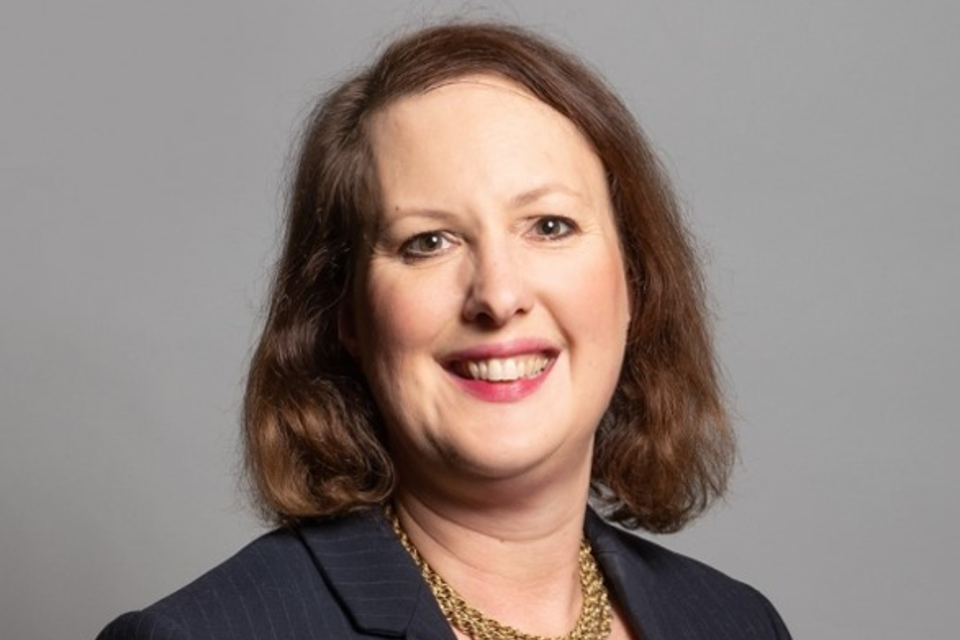
Victoria Prentis MP
It is important that the benefits to our physical and mental wellbeing from engaging with nature are available to all of us. Access to blue spaces provides even higher wellbeing benefits than access to nature generally. We are committed to making the England Coast Path as accessible as possible for disabled users, so that more people can experience the landscape and wildlife of England’s beautiful coast.
(Victoria Prentis MP, Ministerial Disability Champion for the Department for Environment, Food and Rural Affairs)
The Department for Environment, Food and Rural Affairs (Defra) is responsible for safeguarding the UK’s natural environment, supporting our world-leading food and farming industry and sustaining a thriving rural economy.
The department is committed to ensuring that disabled people experience the benefits of regular access to nature.
The department will take action to remove physical barriers to accessing the natural environment.
Defra commits to:
- improve access to national paths and trails in England
- deliver a £5.77 million investment in green social prescribing, which will benefit disabled people
- implement the 25 Year Environment Plan, ensuring nature is accessible to everyone
Department of Health and Social Care
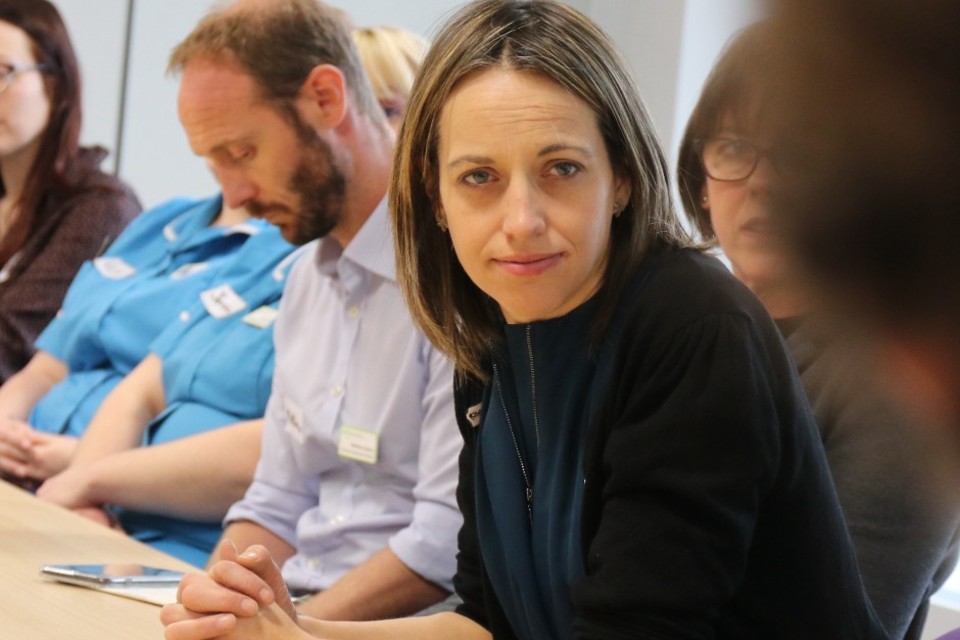
Helen Whately MP
I will continue to champion inclusivity in policy making across this department and very much welcome the opportunity of this cross-government strategy to drive change and improve the lives of disabled people. Improving health and care outcomes for disabled people is a priority for DHSC, the NHS and adult social care and cuts across all that we do.
(Helen Whately MP, Ministerial Champion for the Department of Health and Social Care)
The Department of Health and Social Care (DHSC) supports ministers in leading the nation’s health and social care system to help people live more independent, healthier lives for longer.
The department is committed to improving disabled people’s health and care outcomes.
Alongside progressing plans to transform adult social care and modernise the Mental Health Act, the department will take further action to build the evidence base for longer-term improvements and to educate frontline staff.
DHSC’s refreshed Autism Strategy aims to improve the lives of autistic people and their families and carers in England. It builds on and replaces the preceding adult autism strategy Think Autism, published in April 2014. It extends the scope of the strategy to children and young people for the first time.
DHSC commits to:
- put disabled people front and centre in social care reform
- strengthen the data and evidence base to support policies that will transform outcomes for disabled people
- tackle the stigma and discrimination that disabled people face every day to improve quality of life and reduce inequalities
- ensure that health and social care staff understand learning disability and autism to reduce health inequalities
Department for Transport

Chris Heaton-Harris MP
I am committed to ensuring our transport network is accessible for all as we Build Back Better from COVID-19. This National Disability Strategy, alongside our Inclusive Transport Strategy, Gear Change, Bus Back Better, and Rail reform commitments, sets out how we will deliver an accessible transport network that underpins this government’s ambition to build a society that works for all.
(Chris Heaton-Harris MP, Ministerial Disability Champion for the Department for Transport)
The Department for Transport (DfT) works with agencies and partners to support the transport network that helps the UK’s businesses and gets people and goods travelling around the country. The department plans and invests in transport infrastructure to keep the UK on the move.
The department is determined to achieve an accessible transport system for all.
The department will take action to make it easier and more pleasant for disabled people to use public transport like trains and buses and to travel by road, whether privately or via taxis and private hire vehicles.
DfT commits to:
- enable disabled people to travel with confidence by addressing staff training, information and the attitudes and behaviours of others
- improve the accessibility and safety of the rail network
- improve the accessibility of buses, bus stations and bus stops
- tackle shortages in community transport drivers
- improve accessibility of taxis and private hire vehicles
- make ‘life line’ ports more accessible
- create new accessibility standards for electric vehicle charging points
Department for Work and Pensions
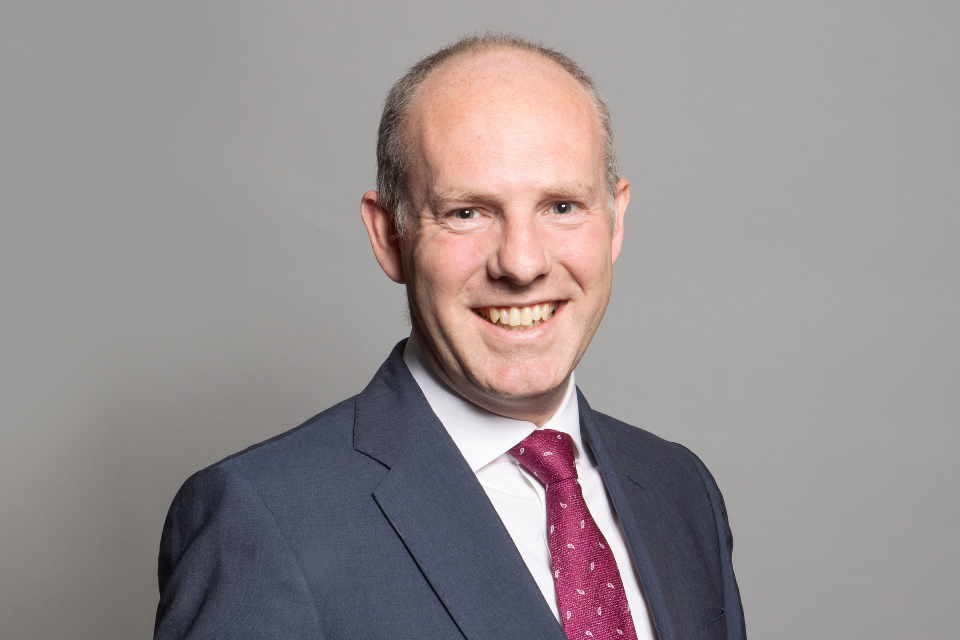
Justin Tomlinson MP
I feel privileged to have been able to contribute as Minister for Disabled People to improving the lives and opportunities for disabled people. It has been not just my job but my passion for a number of years. Much has been achieved, but there is still so much more to do. The National Disability Strategy, coupled with the Health and Disability Green Paper and other actions that DWP is taking, will provide a fantastic platform to level up for disabled people across the UK.
(Justin Tomlinson MP, Minister for Disabled People and Ministerial Disability Champion for the Department for Work and Pensions)
The Department for Work and Pensions (DWP) is responsible for welfare, pensions and child maintenance policy. As the UK’s biggest public service department, it administers the State Pension and a range of working age, disability and ill-health benefits to around 20 million claimants and customers.
The department is committed to enabling disabled people to live independently and move into work where this is possible.
Alongside the strategy, DWP published its Health and Disability Green Paper Shaping Future Support. This sets out the department’s ambition to support and empower disabled people to achieve their full potential.
The department is also publishing the response to the Health is Everyone’s business consultation. The response ensures that better support is provided to people in work.
DWP will take action to remove the barriers disabled people face at work and set out proposals to improve access to support for disabled people who cannot work.
DWP commits to:
- set out proposals to improve the experience of accessing disability benefits
- pilot an Access to Work Passport to help disabled people progress through education and move into employment
- make available a passport for all young disabled students, including those receiving Disabled Students’ Allowance (DSA), when they leave university
- encourage employers to hire disabled people and to create inclusive workplaces by reviewing Disability Confident, strengthening the Voluntary Reporting Framework, and disseminating best practice to employers
- expand trials for supported employment services
Foreign, Commonwealth and Development Office
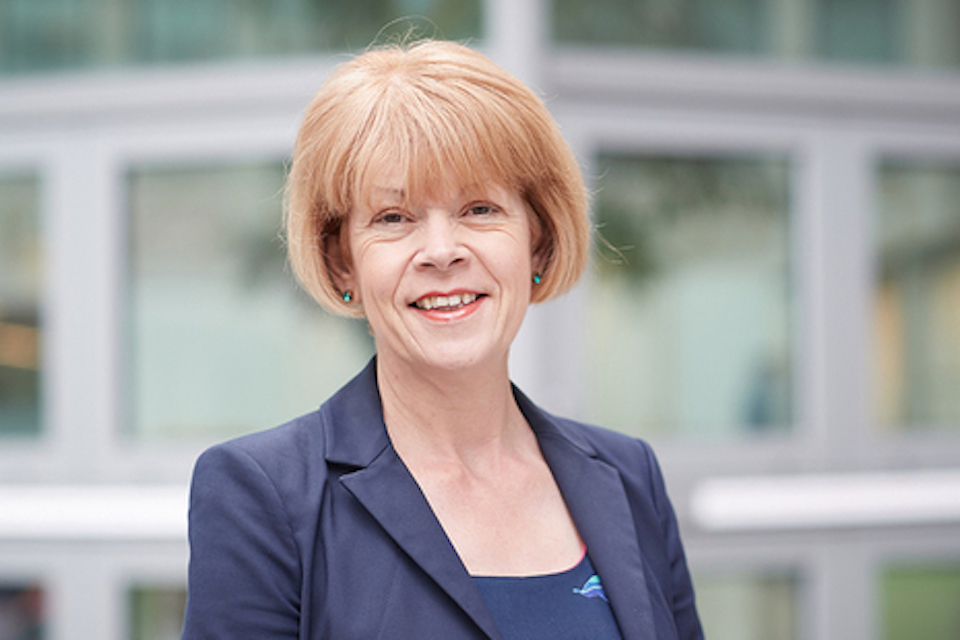
Wendy Morton MP
Disability rights and inclusion means a world where all people with disabilities are engaged, empowered and able to exercise and enjoy their rights on an equal basis with others. With an estimated 1 billion people with disabilities across the world – approximately 15% of the population – it is an issue that must not be ignored. I am proud of the UK’s legacy of global leadership and my department’s continued commitment to embedding disability rights throughout our international responses, including COVID-19 and climate change.
(Wendy Morton MP, Ministerial Disability Champion for the Foreign, Commonwealth and Development Office)
The Foreign, Commonwealth and Development Office (FCDO) pursues the UK’s national interests and projects the UK as a force for good in the world. The department promotes the interests of British citizens, safeguards the UK’s security, defends the UK’s values, reduces poverty and tackles global challenges with our international partners.
The UK has played a critical role in raising the profile of disability internationally. FCDO will continue this global leadership role.
FCDO commits to:
- launch the enhanced FCDO Disability Inclusion Strategy and embedding disability rights in the new International Development Strategy in 2021
- make the UK’s Official Development Assistance spend - £10 billion in 2021 to 2022 - disability inclusive
- establish a new FCDO External Disability Board, first meeting to take place by December 2021
- create more opportunities for disabled people to serve in MI6 and GCHQ
Home Office
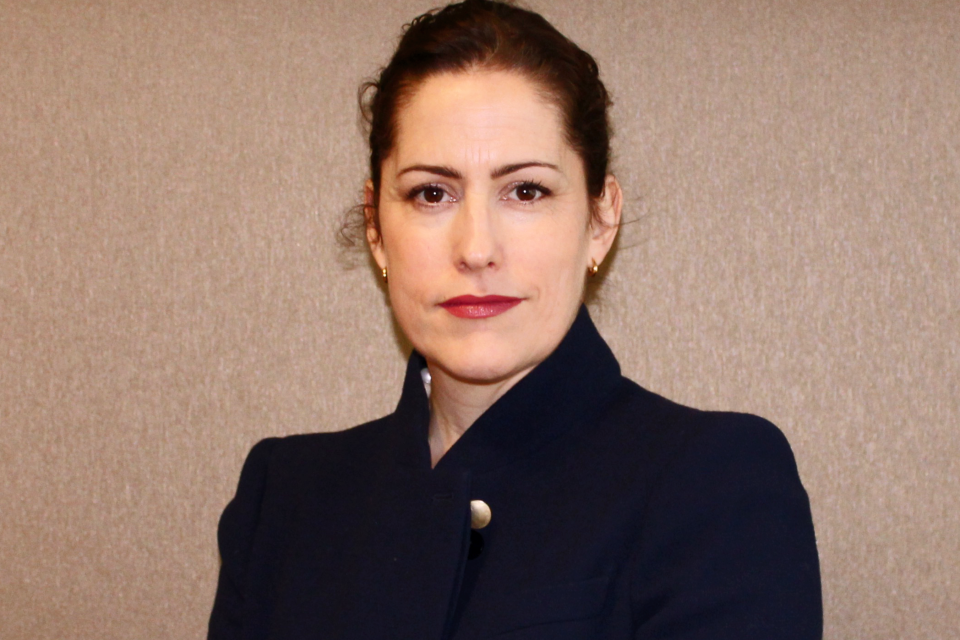
Victoria Atkins MP
I am so pleased to be promoting the work of the National Disability Strategy in the Home Office. It is vital that we continue to promote policies which support our disabled employees, customers and the communities we serve.
(Victoria Atkins MP, Ministerial Disability Champion for the Home Office)
The first duty of the government is to keep citizens safe and the country secure. As such, the Home Office plays a fundamental role in the security and economic prosperity of the United Kingdom.
The department has a vital role to play in keeping disabled citizens safe and secure.
The department will continue to tackle disability hate crime, as well as tackle the accessibility skills gap as part of a cross-government effort with other departments.
The Home Office commits to:
- develop a new cross-government strategy to tackle the crime and disorder that undermines the quality of life for everyone, including tackling disability hate crime
- engage disabled people and disability stakeholders in the development of the new hate crime strategy
- tackle the Accessibility Skills Gap
- create more opportunities for disabled people to serve in MI5
Ministry of Defence

Leo Docherty MP
It is mission critical that we maximise the diversity and capability of the workforce throughout the Defence sector. The National Disability Strategy is an important contribution to this goal, levelling up opportunities for people with disabilities to fully participate in the life of this country, including its defence. This is why there is a focus on increasing the number of opportunities for those who have been classed as disabled to join Defence. It is also why we will continue to ensure that more people who become disabled through the course of their service can continue to serve. And for those who cannot we will ensure they receive the best support as veterans, recognising and nurturing their talents and ongoing contribution to our national life.
(Leo Docherty MP, Ministerial Disability Champion for the Ministry of Defence)
The Ministry of Defence (MOD) works to protect our people, territories, values and interests at home and overseas. Through strong armed forces, and in partnership with allies, it ensures our security, supports our national interests and safeguards our prosperity.
The department will be an exemplar for inclusion, and will create more opportunities for disabled people in both the armed forces and in civilian roles.
The department will take action across all parts of the defence workforce from the armed forces, to civilians, to the armed forces of the future like the National Cyber Force – to improve opportunities for disabled people to serve.
MOD commits to:
- publish a plan to bring more disabled people into the civilian workforce
- explore how to increase opportunities for disabled people to join Defence
- deliver the Armed Forces Recruitment Programme to recruit more diverse military personnel
- use the National Cyber Force as a pathfinder for inclusivity
- share best practice and insight from the veterans’ adaptive sport community with disability organisations and providers of sport and activity
Ministry of Housing, Communities and Local Government
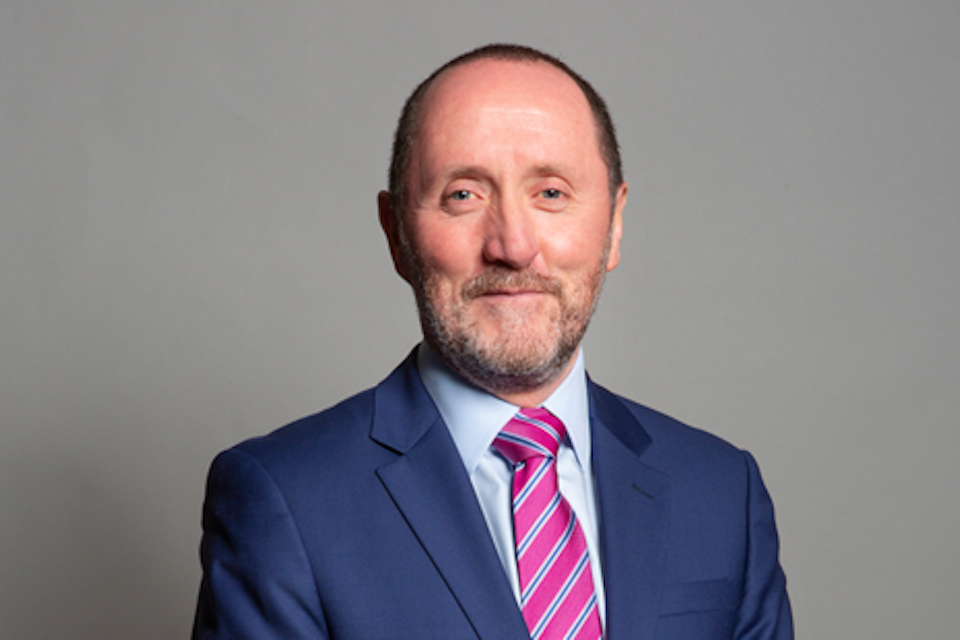
Eddie Hughes MP
As Ministerial Champion I will drive forward my department’s commitments to create more accessible homes, streets, towns and communities. I am particularly proud that since 2015 government funding for the Disabled Facilities Grant has more than doubled to £573 million in 2021 to 2022, providing more than 450,000 adaptations. I hope that new guidance on delivery of the Disabled Facilities Grant leads to even more adaptations in future.
(Eddie Hughes MP, Ministerial Disability Champion for the Ministry of Housing, Communities and Local Government)
The Ministry of Housing, Communities and Local Government’s (MHCLG) job is to create great places to live and work, and to give more power to local people to shape what happens in their area.
The department is committed to driving improvements so that disabled people experience great places to live and work every day.
The department will take action across housing and planning to create more accessible homes and communities.
MHCLG commits to:
- boost England’s housing supply for disabled people by setting out plans to increase the accessibility of new homes, options for supported housing and home ownership
- ensure the safety of disabled people in buildings, for when there are emergencies
- consider how we can support projects that will increase high street accessibility for disabled people, through the design of any future local growth funding
- accelerate the role out of specialist Changing Places toilets across the country
- encourage local authorities to build and refurbish more inclusive playgrounds for disabled children
Ministry of Justice

Robert Buckland MP
As a barrister, part-time circuit judge and now as Lord Chancellor, I’ve too often seen people with conditions like autism and dyslexia struggle through their brush with the law. It might be that they get lost in the complex legal language or fall foul of it simply because it’s harder to make sense of things. That’s why I launched a ‘Call for Evidence’ to better understand the issues experienced by this cohort, as an important first step to driving improvements in how our criminal justice system responds to neurodiversity.
(Robert Buckland MP, Ministerial Disability Champion for the Ministry of Justice)
The Ministry of Justice (MoJ) works to protect and advance the principles of justice in England and Wales. Its vision is to deliver a world-class justice system that works for everyone in society.
The department is committed to improving support for disabled people if they come into contact with the criminal justice system.
The department will take action to improve the accessibility of the courts, improve support for neurodivergent offenders, and enhance the rights of disabled victims of crime.
MoJ, Her Majesty’s Prison and Probation Service and HM Courts and Tribunals Service commit to:
- attract more disabled people to the magistracy
- set out enhanced rights for disabled victims
- progress legislation in 2021 as part of the Police, Crime, Sentencing and Courts Bill to amend common law so that deaf people who need a British Sign Language (BSL) interpreter can do jury service
- develop a neurodiversity training toolkit for frontline staff
- improve provision for disabled users, including through the accessibility of the estate and use of digital support
HM Treasury

Simon Clarke MP
HM Treasury is committed to removing barriers for disabled people. I am fully supportive of the National Disability Strategy and am determined to ensure the experiences of disabled people are reflected in this government’s decision-making.
I particularly welcome the strategy’s focus on considering disability issues right from the start of policy making - when it really matters, ensuring that support for disabled people is at the heart of everything the government does. I am committed to working with departments to make this vision a reality.
(Simon Clarke MP, Ministerial Disability Champion for HM Treasury)
HM Treasury is the government’s economic and finance ministry, maintaining control over public spending, setting the direction of the UK’s economic policy and working to achieve strong and sustainable economic growth.
The department is committed to ensuring the needs of disabled people are considered during the policy-making process, in line with both its legal obligations and with its strong commitment to equality issues. The department is also committed to ensuring that disabled staff are represented at all levels and recognises that good policy advice depends on the diversity of our people. We work closely with our staff networks to ensure that we are a department that is inclusive, where people are able to thrive.
HM Treasury commits to:
- ensuring public spending and other policy advice considers disabled people from the outset
- working with disability and access ambassadors on banking and insurance
- improving progression outcomes for disabled employees by providing support, raising awareness and learning opportunities
- supporting our leaders to create an inclusive, open and safe environment for disabled staff
